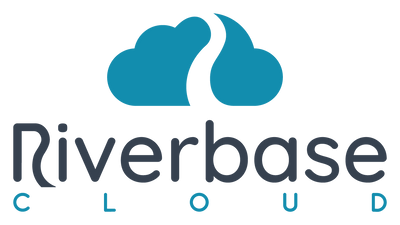Did you know that 93% of online experiences begin with a search engine? In today's digital landscape, mastering Google's search engine optimization (SEO), online reputation, online reviews, and yelp can significantly impact your business's visibility and success. While Yelp is valuable for local businesses, harnessing the power of Google SEO and positive customer reviews on Yelp can elevate your online presence and reputation to unprecedented levels. So, why should you prioritize Google SEO over Yelp? This blog post explores the reasons why it is more beneficial to use Google SEO instead of relying solely on Yelp to improve your business's visibility and expansion in local search results and online reputation, through positive reviews.
Google SEO vs Yelp for Business Visibility
Google SEO helps businesses appear in local search results, increasing online visibility to potential customers. By optimizing their Google search rankings, companies can target specific locations, attract local customers effectively, and improve their online reputation. This targeted approach often leads to higher revenue opportunities as it caters directly to the needs of the local audience and customers.
Implementing effective Google SEO strategies, local search results, online reviews, testimonials, and customers have a significant impact on business growth. It drives organic traffic to local business websites, thereby increasing the chances of generating leads and sales from customers. Businesses that rank higher on Google search results gain more exposure and reach a wider audience, which is essential for expanding customer base and boosting revenue.
Impact on Business Growth
With an emphasis on Google SEO and local search results, businesses can significantly boost brand awareness and credibility. This is crucial for establishing trust with potential customers and fostering long-term relationships with them on Yelp and a Google Business Profile. As customers tend to trust Google's search results more due to its sophisticated algorithms and extensive user feedback, prioritizing Google SEO enhances a company's reputation as reliable and trustworthy.
The Influence of Yelp vs. Google on Consumer Decisions
Greater Influence
Customers heavily rely on Google search results when making purchasing decisions, giving it an edge over Yelp. With over 3 billion searches every day, Google is almost every person’s go-to engine when they want to search for something. When users search for local businesses, they trust Google and Yelp to provide accurate and relevant information. Positive Google positioning, high ratings, and Yelp have a significant impact on consumer choices, influencing their decision-making process. It cannot be overstated how popular Google is. In contrast, while Yelp also offers customer reviews, the influence is generally considered to be less impactful compared to Google.
Considerations of Platform Choice
Industry-Specific Needs
Different industries may require specific SEO strategies tailored to their unique needs, which can be better addressed through Google SEO. For instance, while Yelp is popular for restaurant reviews, other sectors such as local services may find greater success with Google SEO. This is because certain industries may benefit more from appearing in Google's search results due to user behavior and preferences.
For example, a local plumbing contractor might prioritize showing up on local searches within Google rather than focusing solely on Yelp reviews. Similarly, an HVAC service business might gain more visibility by optimizing its website for Google searches rather than relying solely on Yelp.
Long-Term SEO Benefits
Implementing effective Google SEO strategies ensures long-term visibility and sustainable organic traffic growth. Consistently optimizing for Google's search algorithms helps businesses stay ahead of the competition in the long run. With ongoing changes in user search behavior and algorithm updates, businesses need to adapt to evolving trends—something that can be effectively achieved through robust Google SEO practices.
Closing Thoughts
In the battle of Google SEO vs. Yelp, it's clear that Google takes the crown for business visibility. With its broader reach and influence, Google SEO and Yelp offer a competitive edge in attracting potential customers. However, don't dismiss Yelp entirely. The platform still holds sway over consumer decisions, especially.
As you navigate the digital marketing landscape, consider leveraging Google SEO for enhanced visibility while also maintaining a presence on Yelp to cater to the review-centric audience. Striking a balance between Yelp and these platforms can amplify your business's online presence and credibility, ultimately driving more customers and revenue.
Frequently Asked Questions
Why should businesses prioritize Google SEO over Yelp for visibility?
Google SEO and Yelp offers broader reach and higher search volume, increasing the likelihood of potential customers discovering your business. Google's local search results are prominently displayed, providing valuable exposure to nearby consumers actively seeking products or services.
How does Yelp influence consumer decisions compared to Google?
Yelp primarily influences consumers who seek detailed reviews when making purchasing decisions. On the other hand, Google's influence extends across a wider spectrum of user activities, including general search queries and industry authority.
What factors should businesses consider when choosing between Google and Yelp for reviews?
Businesses should weigh the significance of local visibility versus review depth. For instance, if a business heavily relies on foot traffic from nearby areas, prioritizing Yelp might be beneficial due to its strong focus on localized reviews. Conversely, if local online visibility is crucial, focusing on Google SEO would be advantageous and provide more value.
Can a business effectively utilize both platforms simultaneously?
Absolutely! By strategically optimizing their presence on both platforms, businesses can harness the unique advantages offered by each. This approach allows them to maximize their online visibility while catering to diverse consumer behaviors influenced by different platforms.

